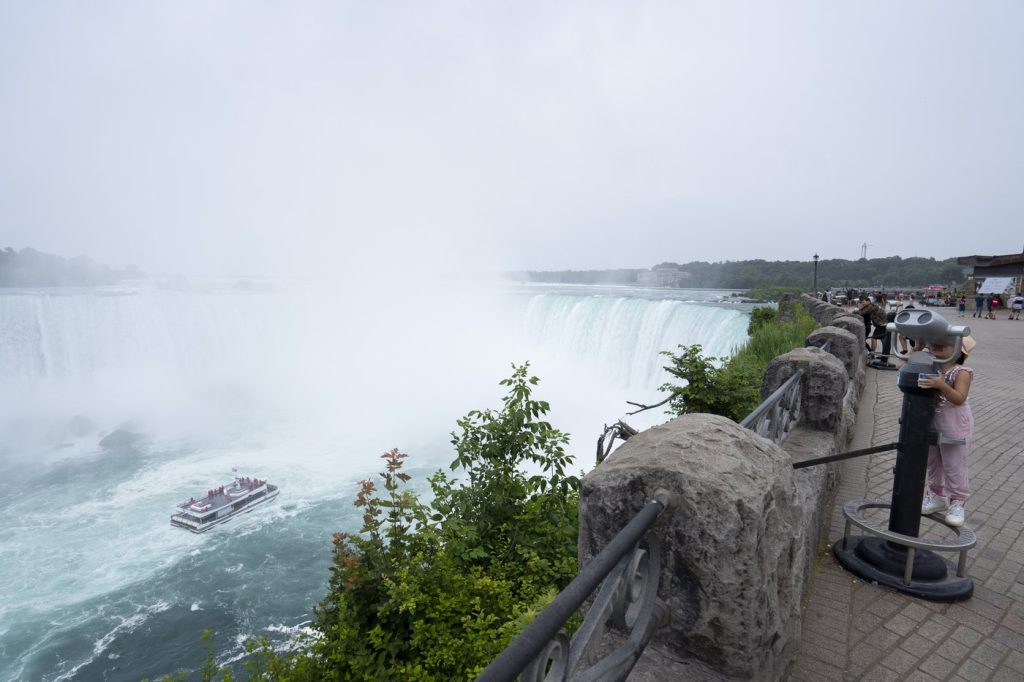Tourism operators in Ontario’s popular destinations are experiencing a surprising increase in demand despite ongoing tensions between the U.S. and Canada. Many local businesses attribute this surge to Canadian staycationers looking to enjoy local attractions, offering a glimmer of hope for an otherwise uncertain economic landscape.
Rachel and Scott Clément, business owners in Prince Edward County, have seen their initial concerns about potential booking losses transform into relief as demand increases for their cottage rentals. This region, known for its beaches, wine tours, and camping, remains less than three hours away from both Toronto and Ottawa. The Cléments manage approximately 100 cottages at a resort near Sandbanks Provincial Park, a venture they embarked on just weeks before the onset of a trade war initiated by U.S. President Donald Trump through tariff orders.
“We were concerned we were going to lose bookings,” Scott Clément stated in a recent interview. However, as Canadians began to rally in support of local tourism, he noted, “we realized we’re probably going to do better than we believed.” The Clément's bookings are reportedly up by around 87 percent this year compared to last, providing them with a significant sense of relief amid challenges faced during the COVID-19 pandemic.
Other businesses in Prince Edward County are also bracing for a busy summer. Sol Korngold, the general manager of The Royal Hotel in Picton, Ontario, reported about a 25 to 30 percent increase in bookings compared to the previous year. April Brown, owner of the June Motel in Picton, revealed her bookings are up about 10 percent compared to March 2024. “People are booking earlier than they were last year,” Brown noted, indicating a trend towards proactive vacation planning.
Most visitors to Prince Edward County hail from the Greater Toronto Area, Ottawa, and Quebec. About 90 percent of people booking stays at Brown’s motels are from either Toronto or Montreal, while Korngold noted that at least 70 percent of his clientele comes from the Greater Toronto Area, with a small number of American visitors. According to Sarah Fox, executive director of Visit The County, preliminary data from platforms like Airbnb and VRBO suggests a projected increase of 30 to 40 percent in bookings this summer compared to last year.
As excitement builds around the potential for a vibrant summer season, the Niagara Region anticipates an influx of both American and Canadian visitors. Janice Thomson, CEO of Niagara Falls Tourism, explained that domestic visitors are discovering their national pride and that favorable currency exchange rates entice American tourists. The Niagara region, which typically welcomes 12 million visitors annually, relies heavily on U.S. tourism, with estimates suggesting 40 percent of tourists are American.
Nevertheless, some experts express caution regarding the summer travel outlook due to lingering uncertainties. “There’s no crystal ball that’s going to tell us exactly how things are going to work out,” remarked Fox, highlighting the looming threat of a recession. Andrew Siegwart, the president and CEO of the Tourism Industry Association of Ontario, concurred, suggesting that while optimism exists, some businesses may experience a slower start.
Many tourism operators are currently delaying hiring and planning due to concerns about U.S.-Canada relations. There are fears that escalating tensions could impede readiness for the summer season and negatively impact service delivery in the long run. Furthermore, Siegwart pointed out that while fewer Canadians are crossing the border, it does not automatically mean Ontarians will opt for local travel, as they may prefer to vacation in other parts of Canada or abroad.
A survey conducted for Destination Ontario indicated that 75 percent of American respondents are unlikely to let U.S.-Canada tensions affect their travel plans to Ontario, making it critical for the region to maintain their hospitality towards all visitors. Siegwart emphasized the delicate balance of addressing national sentiments while warmly welcoming tourists, saying, “The ‘elbows up’ policy is important, but so too is the arms open on hospitality.”










